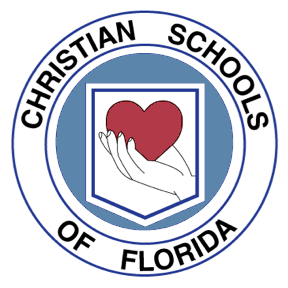Accreditation Strand #4
Teaching & Learning
Curriculum and instruction
-
The school provides a researched-based curriculum and instructional methods that facilitate achievement for all students. The curriculum is based on clear and measurable expectations/objectives for student learning and provides opportunities for all students admitted to the school to acquire knowledge, skills, and attitudes within a biblical framework.
Teachers use proven instructional practices that effectively engage students in the learning process and provide opportunities for students to apply their knowledge and skills in real world situations as Christians. Teachers give to students sufficient feedback to improve their performance.
Teachers provide spiritual and professional role models that encourage students to aspire to a lifetime of learning as Christians and to view the world from a consistent biblical/transformational worldview.
Standards
Artifacts
* Required-
School Implements Clearly-Defined Learner Outcomes
The school develops and implements a curriculum based on clearly-defined learner outcomes.
Artifact Curriculum Guide * -
School Improvement Plan Considers Community
The school demonstrates in the school improvement plan a knowledge and understanding of the community for which the school is founded (e.g. opportunities for recruiting families and students, attitudes of the local Christian community and local pastors toward the school, and the impact of demographic and economic trends on enrollment).
Artifacts Demographic studies Evidence of Interaction with local Christian leaders Stakeholder Survey Tracked and projected enrollment figures -
School Promotes Higher-Order Thinking Skills
The school promotes the use of higher-order thinking skills and guides students to be actively involved in accompanying learning process.
Artifacts Curriculum Guide * Evidence of STEM/STEAM or robotics offerings Incorporation of Bloom’s Taxonomy -
School Offers Curriculum of Challenge and Equity
The school offers a curriculum that challenges each student to excel, reflects a commitment to equity within the scope of student needs and admission policies, and demonstrates a willingness to value and address diversities.
Artifacts Admissions Policy Curriculum Guide * Evidence of addressing diverse learning needs (eg ESE/SWD, gifted) Evidence of diversity training -
School Conforms to Florida Compulsory Attendance Law
The school allocates and guards instructional time within the school day and school calendar in order to maximize time on task and student learning, conforming the school year to the Florida Compulsory School Attendance Law and the interpretation of that Law by the FLDOE.
See Explanatory Standards for artifacts -
School Maintains Written Curricular Alignment in Scope and Sequence
The school maintains and follows an up-to-date, written curricular alignment in scope and sequence among all levels of learners for all current courses and subject areas. It includes (a) a Christian philosophy of teaching and learning; (b) instructional objectives and learner outcomes; (c) student assessments; (d) course outlines that identify concepts; and (e) materials and resources used to accomplish the goals and outcomes.
See Explanatory Standards for artifacts -
School Evidences Intra- and Inter-Departmental Cooperation
The school evidences cooperative vertical, horizontal, intra-departmental, and inter-departmental planning and coordinating the curriculum.
Artifact Inter- and Intra-Departmental meeting agendas/minutes -
School Addresses Special Needs Assistance
The school implements processes and utilizes personnel necessary to address student learning for those needing special assistance.
See Explanatory Standards for artifacts -
School Provides Spiritual, Academic, and Career Counseling
The school provides appropriate guidance and counseling services for students’ spiritual, academic, and career counseling.
Artifact Plans for spiritual, academic & career counseling -
School Employs Guidance Counseling Personnel or Plan
The school employs a guidance counselor or contracted consultant for high schools dependent upon the full-time equivalent student population. A written guidance plan is followed for the provision of counseling services for elementary and middle schools.
See Explanatory Standards for artifacts -
School Provides Comprehensive Technology and Media Services and Personnel
The school provides access for all students to comprehensive technology and media services and personnel that support the curricular and instructional programs.
See Explanatory Standards for artifacts -
School Establishes and Maintains Student Discipline
The school establishes and maintains student discipline processes, dress codes, and student behavior expectations that are appropriate in nature, are clearly defined in written form, are fairly and consistently implemented, are documented when necessary, and are distributed to the school families, faculty, and staff. These include important topics including attendance, suspension and expulsion, substance abuse, and sexual harassment. The school monitors its climate and campus, and consistently takes steps to ensure they are conducive to safe and unhindered learning.
Artifact Student Handbook * -
Transfer of Credit
Member schools are encouraged to accept credit for academic work accomplished at schools accredited by a recognized accrediting agency (see below for definition of recognized accrediting agency).
Member schools will not award academic credit for course work completed under a private tutor or a non-accredited program unless validated by either an End-Of-Course Assessment (EOCA) approved by the receiving school or by the student’s performance as validated during at least one grading period in the receiving school. This does not apply to students taking online courses offered by accredited delivery programs.
Recognized Accrediting Agencies:
- Regional Accrediting Agencies: Cognia, MSSA, NCACS, NEACS, WACS, NWACS
- Member Accrediting Agencies of the Florida Association of Academic Nonpublic Schools (FAANS)
- Member Accrediting Agencies of the National Council for Private School Accreditation (NCPSA)
Artifacts
* Required -
